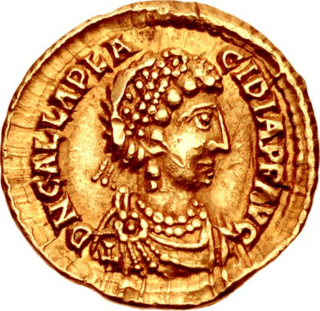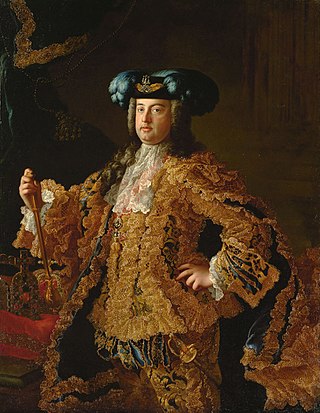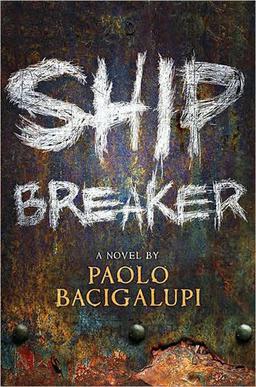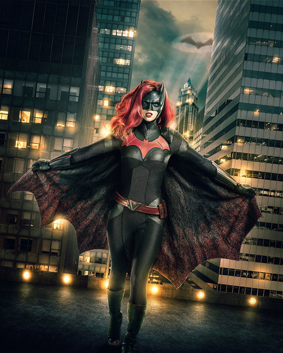Plot summary
The book starts with a 4:37 a.m. phone call from Mike Daniels to Kathryn (Kate) Telman. He has been drugged, and about half of his teeth randomly and expertly extracted, just before an important meeting in Japan.
The Business is a powerful (yet democratic) multinational commercial organisation, secretive (but not too sinisterly so), and very long-lived. It predates the Roman Catholic Church, and descends from a consortium of merchants in the Roman Empire which it even owned for sixty-six days (it hired a man to become emperor, but he lasted less than a month before being assassinated; a reference to the emperor Didius Julianus). It is now considering taking over a country in order to gain a seat at the United Nations.
The story follows the heroine, Kate Telman, who is 38 and lusts after Stephen Buzetski, who is married. Starting from poverty, she has risen through the Business under the tutelage of her mentor, who adopted her at an early age, and her 'uncle Freddy', the man who invented the portable milk container (named the "chilp").
She is investigating a possible case of someone stealing from the company, starting with strange happenings at a silicon chip manufacturing plant. Although she discovers evidence of wrongdoing at a high level in the Business, she continues to believe in what they are doing as an organisation.
She travels the world, at one point being summoned by a weapon-collecting higher-up in Nebraska to talk his nephew out of writing an incendiary anti-Islamic screenplay. A scene of the book takes place on a ship on its way to be broken up at a shipyard in Sonmiani Bay. She has several telephone conversations with her therapy-damaged friend Luce in California, who provides a cynical, suspicious, foul-mouthed counterpoint to Kate's goodheartedness. She is given a DVD of Stephen's wife having extramarital sex in an attempt to influence her.
She also becomes involved in the acquisition of the small Himalayan country of Thulahn. Small and underdeveloped, bleak and vulnerable, the football pitch doubles as the airport, "the royal palace is heated by yak dung" and the "national sport is emigration". It resembles an exaggerated version of Bhutan.
Under the Business's plan, Thulahn would be utterly changed, if not destroyed, and its people thrust into the modern world. Kate is given the job of negotiating with Thulahn's crown prince Suvinder Dzung, who when he last met her had fallen in love with her.

Galla Placidia, daughter of the Roman emperor Theodosius I, was a mother, tutor, and advisor to emperor Valentinian III. She was queen consort to Ataulf, King of the Visigoths from 414 until his death in 415, briefly empress consort to Constantius III in 421, and managed the government administration as a regent during the early reign of Valentinian III until her death.

Iain Banks was a Scottish author, writing mainstream fiction as Iain Banks and science fiction as Iain M. Banks, adding the initial of his adopted middle name Menzies. After the success of The Wasp Factory (1984), he began to write full time. His first science fiction book, Consider Phlebas, appeared in 1987, marking the start of the Culture series. His books have been adapted for theatre, radio, and television. In 2008, The Times named Banks in their list of "The 50 greatest British writers since 1945".

Marcus Opellius Macrinus was a Roman emperor who reigned from April 217 to June 218, jointly with his young son Diadumenianus. Born in Caesarea, in the Roman province of Mauretania Caesariensis to an equestrian family of Berber origins, he became the first emperor who did not hail from the senatorial class and also the first emperor who never visited Rome during his reign. Before becoming emperor, Macrinus served under Emperor Caracalla as a praetorian prefect and dealt with Rome's civil affairs. He later conspired against Caracalla and had him murdered in a bid to protect his own life and succeeded Caracalla as emperor.

Lucius Septimius Severus was Roman emperor from 193 to 211. He was born in Leptis Magna in the Roman province of Africa. As a young man he advanced through the customary succession of offices under the reigns of Marcus Aurelius and Commodus. Severus was the final contender to seize power after the death of the emperor Pertinax in 193 during the Year of the Five Emperors.

The 15th century was the century which spans the Julian calendar dates from 1 January 1401 to 31 December 1500 (MD).

Empress Matilda, also known as Empress Maud, was one of the claimants to the English throne during the civil war known as the Anarchy. The daughter and heir of Henry I, king of England and ruler of Normandy, she went to Germany as a child when she was married to the future Holy Roman Emperor Henry V. She travelled with the emperor to Italy in 1116, was controversially crowned empress in St Peter's Basilica, and acted as the imperial regent in Italy. Matilda and Henry V had no children, and when he died in 1125, the imperial crown was claimed by his rival Lothair of Supplinburg.

The Player of Games is a science fiction novel by Scottish writer Iain M. Banks, first published in 1988. It was the second published Culture novel. A film version was planned by Pathé in the 1990s, but was abandoned.

Francis I was Holy Roman Emperor from 1745 to 1765, Archduke of Austria from 1740 to 1765, Duke of Lorraine and Bar from 1729 to 1737, and Grand Duke of Tuscany from 1737 to 1765. He became the ruler of the Holy Roman Empire, Austria, and Tuscany through his marriage to his second cousin Maria Theresa of Austria, daughter of Emperor Charles VI. Francis was the last non-Habsburg monarch of the Empire. The couple were the founders of the Habsburg-Lorraine dynasty, and their marriage produced sixteen children.

Babylon the Great, commonly known as the Whore of Babylon, refers to both a symbolic female figure and a place of evil as mentioned in the Book of Revelation of the New Testament. Her full title is stated in Revelation 17:5 as "Mystery, Babylon the Great, the Mother of Harlots and Abominations of the Earth".

Cherie, Lady Blair, also known professionally as Cherie Booth, is an English barrister and writer. She is the spouse of former Prime Minister of the United Kingdom Tony Blair.

Theodora, sometimes called Theodora the Armenian or Theodora the Blessed, was Byzantine empress as the wife of Byzantine emperor Theophilos from 830 to 842 and regent for the couple's young son Michael III, after the death of Theophilos, from 842 to 856. She is sometimes counted as an empress regnant, exercising power in her own right, rather than just a regent. Theodora is most famous for bringing an end to the second Byzantine Iconoclasm (814–843), an act for which she is recognized as a saint in the Eastern Orthodox Church. Though her reign saw the loss of most of Sicily and failure to retake Crete, Theodora's foreign policy was otherwise highly successful; by 856, the Byzantine Empire had gained the upper hand over both the Bulgarian Empire and the Abbasid Caliphate, and the Slavic tribes in the Peloponnese had been forced to pay tribute, all without decreasing the imperial gold reserve.

Birds of Prey is a novel by science fiction / fantasy author David Drake, first published in 1984. It is related as a historical novel set in the Late Roman Empire, in the second half of the Third Century. There is a science-fictional twist to the story, starting with hints of a time warp on the very first page and slowly revealing to the reader—and the protagonist—what is really going on behind the scenes. The story is told in a very vivid style, suggestive of cinematography.
Maria of Alania was Byzantine empress by marriages to emperors Michael VII Doukas and Nikephoros III Botaneiates. Her status as empress was considered a significant success for a newly unified Kingdom of Georgia, which would achieve regional influence comparable to that of Byzantium only during the reign of Martha's nephew, King David IV, who refused to carry a Byzantine title. Maria was the only foreign Byzantine empress of the eleventh century.

Rags to riches refers to any situation in which a person rises from poverty to wealth, and in some cases from absolute obscurity to heights of fame, fortune and celebrity—sometimes instantly. This is a common archetype in literature and popular culture, such as the writings of Horatio Alger, Jr.

Ship Breaker is a 2010 young adult novel by Paolo Bacigalupi set in a post-apocalyptic future. Human civilization is in decline for ecological reasons. The polar ice caps have melted and New Orleans is underwater. On the Gulf Coast nearby, humanity has reverted to survival mode and a small economy has grown from the scavenging of washed up oil tankers for bits of copper and other valuables.

Kate Kane, also known by her superhero alias Batwoman and supervillain alias Circe Sionis, is a fictional character in The CW's Arrowverse franchise of TV series, first mentioned in the 2018 episode "Nora" of the television series The Flash, based on the character of the same name, created by Geoff Johns, Grant Morrison, Greg Rucka, Mark Waid and Keith Giffen in 2006, and adapted for television by Caroline Dries. In this version, she is the cousin of famous superhero Bruce Wayne, living in Gotham City, and becomes a superhero in his absence. The character has been portrayed by two different actresses, Ruby Rose and Wallis Day. In the first season of the Batwoman television series, Rose portrayed Kate; when Rose was fired after the end of the season for "multiple complaints" about her behavior, Day was cast as Kate in a recurring role for the second season, while the position of series' lead was taken over by Javicia Leslie as Ryan Wilder, Kate's successor as Batwoman.

The situation of women in the Byzantine Empire is a subject of scientific research that encompasses all available information about women, their environments, their networks, their legal status, etc., in the Byzantine Empire.















